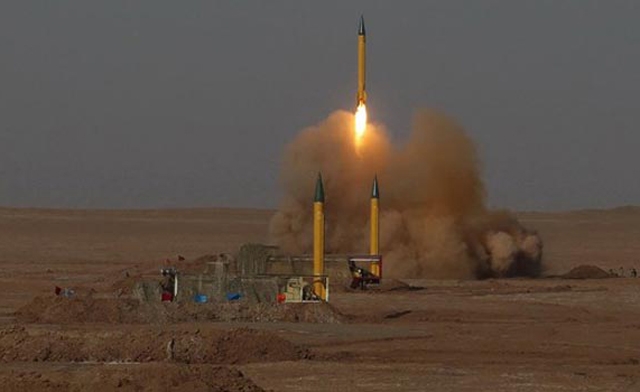HANOVER: It starts with a whistled tune still instantly recognizable 20 years on. Then comes a high voice: I follow the Moskva, down to Gorky Park…
The song, of course, is Wind of Change, the anthem which more than any other hit would come to be associated, cigarette lighters aloft, with the fall of the Berlin Wall 20 years ago this November 9.
And while The Scorpions had an inkling that change was in the air when they penned it, nothing prepared the German heavy metal band for the historic events that followed, nor for how much of a hit their ballad would become.
Wind of Change began life in Moscow at a rock festival in August 1989, recalls singer-songwriter Klaus Meine, reclining in a shrine-like VIP lounge full of gold discs and guitars in the Scorpions Arena stadium named in their honor in Hanover, their hometown.
The Red Army were in front of the stage doing the security with their backs to us. When we went on stage … they turned to face us and just became one with the crowd, throwing their caps into the air, Meine, still sporting leather trousers, a beret and a skull-and-crossbones scarf at 61, told AFP.
Going home we had the impression to have witnessed the world changing before our very eyes. Wind of Change was born soon afterwards, he said.
When a peaceful revolution tore down the Berlin Wall in November 1989, the band missed it, however, as they were living it up a thousand kilometers (600 miles) away in Paris.
We were in the Les Bains-Douches , an exclusive nightclub in the French capital, remembered Scorpions guitarist Rudolf Schenker, his 1980s moustache and long hair now replaced by a shorter, spiky affair and mirrored sunglasses.
Klaus was looking over my shoulder at a television behind the bar and suddenly he said, Hey look! That s the Wall isn t it? There are people on top of the Wall! Schenker, also 61, said.
The demise of the Berlin Wall was followed in 1990 by the unification of the Scorpions native West Germany with communist East Germany, misleadingly known as the German Democratic Republic (GDR), into one democratic country.
For the group s many fans in East Germany, this allowed them to see their idols for the first time.
The GDR authorities, fearing a corruption of the country s youth with album titles like Virgin Killer, songs sung in English and lots of leather, never allowed the band to play there.
Their GDR fans were reduced to traveling to other places behind the Iron Curtain where the Scorpions were more welcome, like to Budapest or Leningrad, now called Saint Petersburg, sleeping in parks because they weren t allowed to change enough money to pay for a hotel, remembers Schenker.
The song came out in 1990, a few months after the fall of the Berlin Wall, and became 1991 s biggest-selling single worldwide.
We were walking along the Champs Elysees in Paris, doing a bit of shopping, and Wind of Change was coming out of every shop, Meine remembers.
Since then, it has sold mountains more copies worldwide and the Scorpions, which began life in 1965, four years after the Berlin Wall anti-fascist barrier first went up, are Germans favorite homegrown band of all time.
For the 10th anniversary of the fall of the Wall, the band performed Wind of Change with 160 cellists, conducted by Russia s Mstislav Rostropovich, the cellist famously pictured playing at its foot in 1989, and who died in 2007.
Not everything has gone smoothly for Germany in the past two decades, but Klaus Meine has no regrets.
You have to admit that not everything has turned out as perfectly as hoped, he said. But the fact that the Wall has fallen, that people are free, that nobody has to die to live in freedom, this is irreversible.

